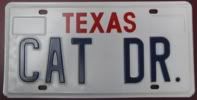So I'm guessing...... No then?
Just kiding, I will make separate lines of conduit!! Especially because I am not good at putting the smoke back in electronics once it comes out !!!
Problems with 12 V and 110 in Same Conduit?
55 posts
• Page 2 of 4 • 1, 2, 3, 4
wannabefree wrote:Wow! I've just gotta post on this one! I swore off the electrical posts; there are so many expert opinions. But this one I can't resist.
Wires can rub together and insulation wear away whether they carry 110VAC or 12VCD. This is a good reason to run you 110V hot line in a separate conduit from the neutral. And add a third conduit for ground. Plus one for the 12Vplus and and a separate Ground. If you work it right, you can put so much conduit in this trailer you won't need walls!
OK, I apologize for being annoying. My solution was to use good stranded wire with really tough insulation. Ran it wherever I wanted, sometimes 12VDC right next to 110VAC -- and no conduit for any of it. I have fuses and breakers and I will take the chance of blowing out something when the 12V shorts to the 110V, if that ever happens. There are no doubt other solutions just as good; perhaps some better. Mine's good enough for me.

 I could not agree more.
I could not agree more.
But something I think that you and I both fail to take into consideration is that the subject here involves teardrop electricity. Teardrop Electricity whether AC or DC, it seems, is much more flammable and deadly than the power plant/transmission line/control circuit electricity that I worked with for so many years. There is even danger if you do not separate the chassis DC from the house DC circuits. And do not forget that very strict National Home Built Teardrop Electrical Code which, I believe, is a thinly disguised Federal Law designed to make felons of us all.
It is quite possible that Teardrop Electricity is so dangerous that consideration of alternatives might be warranted. You can find lights that are powered by dry cell batteries, which though in fact, are DC powered eliminate all those dangerous external wires. DO NOT under any circumstances be taken in by those extremely dangerous rechargeable devices, as they foolishly have you inject AC voltage into a box box full of DC to shock those batteries back to life. If there is a box on the end of the charging cord, then you need to be certain there are no AC power cords near the wire going to the device being charged as it is carrying DC voltage. If it is a simple AC power cord is used for charging, you have the most dangerous situation of all as you now have both AC and DC in the same, usually plastic, housing along with all the other circuitry inside.
Unless you are a highly trained electrical engineer with absolutely no technical, hands on experience, you should probably never consider wiring anything on a TD. I would even advise calling in an expert if you find that someone has foolishly unplugged the connector between the TD and the tow vehicle. Even though this plug can only be connected one way, you are better safe than sorry. Remember both TDAC and TDDC are much more deadly than simple AC or DC voltage.
Sorry, that wannabefree fella made me do it........


Larwyn
Keeper of the Most Out Of Control Shop (2005)
I feel bad for the man that cannot spell a word more than one way. Mark Twain
Keeper of the Most Out Of Control Shop (2005)
I feel bad for the man that cannot spell a word more than one way. Mark Twain
-

Larwyn - Mad Kilted Texan
- Posts: 1658
- Images: 210
- Joined: Sun Jun 20, 2004 12:06 pm
- Location: Kerrville, Texas



 And some get way outta hand. However it hurts nothing and I personally see no reason to run TD12VDC ina conduit.
And some get way outta hand. However it hurts nothing and I personally see no reason to run TD12VDC ina conduit. 
 Mark (& Cindi)
Mark (& Cindi) 




